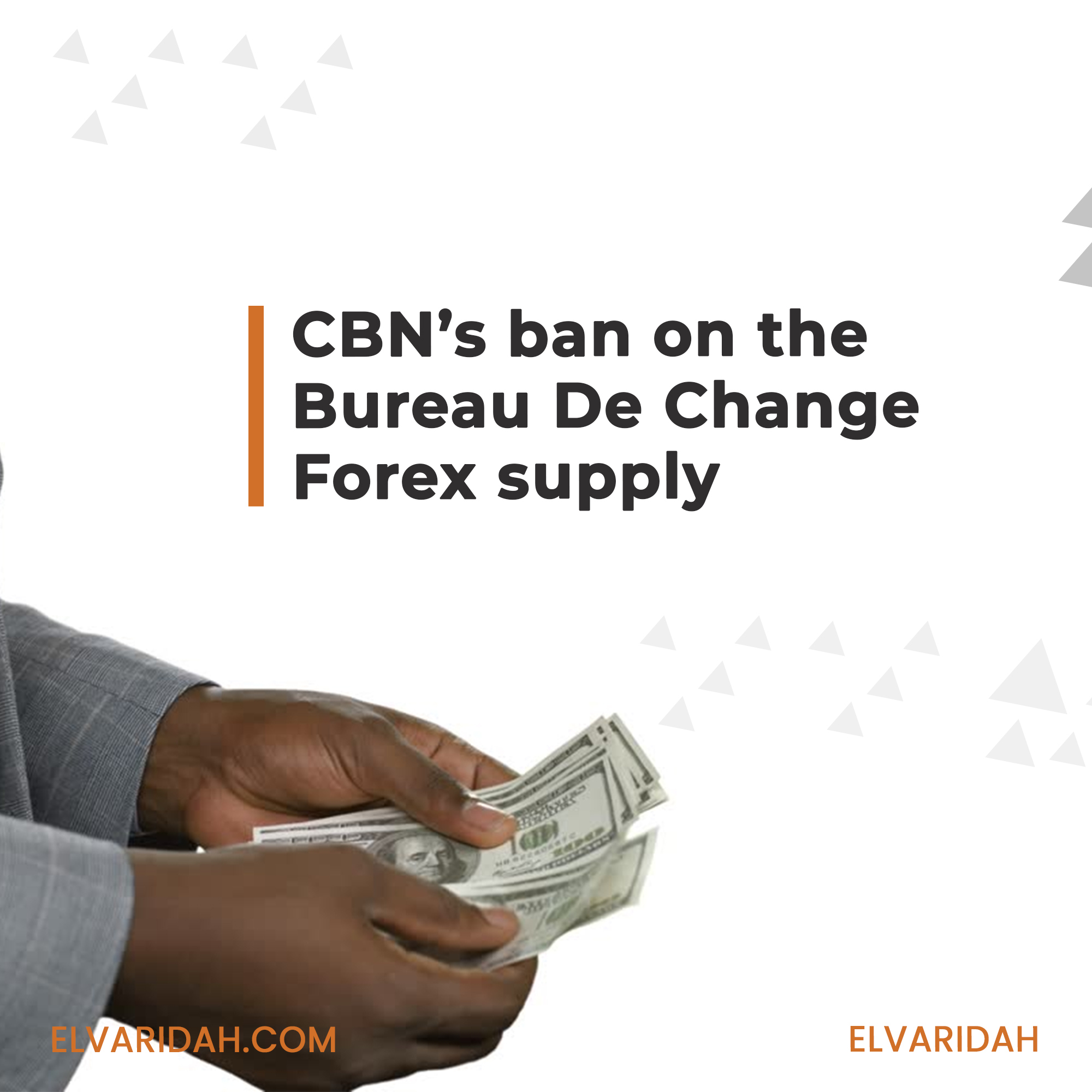The Central Bank of Nigeria (CBN) has said it will no longer sell Foreign Exchange (Forex) to Bureau De Change (BDC) operators.
Instead, the regulator said it will sell more dollars and other foreign currencies directly to commercial banks, which have been mandated to sell to Nigerians.
With the announcement made on Tuesday, CBN Governor, Godwin Emefiele, while briefing reporters on the outcomes of the Monetary Policy Committee (MPC) meeting in Abuja, the Federal Capital Territory (FCT).
“In total disregard of the difficulty that the (apex) bank is facing in meeting its mandate of maintaining the country’s foreign exchange reserves to safeguard the value of the naira, we have continued to observe that stakeholders in some of the sub-sectors have not been helpful in this direction,” he lamented.
Emefiele added, “In particular, we have noted with disappointment and great concerns that our Bureau De Change operators have abandoned the original objective of their establishment which was to serve retail end users who need $5,000 or less.
Meanwhile, the naira fell slightly to the dollar few hours after the CBN’s announcement.
According to the official websites of the BDCs, the naira which exchanged to the dollars at N503/$ on Monday was bought and sold for N503 and N505 on Tuesday evening.
The CBN also observed that the BDCs aid illicit financial flows and other financial crimes. The bank has thus decided to discontinue the sale of forex to the BDCs with immediate effect. “We shall, henceforth, channel all forex allocations through the commercial banks,” he said.
He urged the commercial banks to ensure that every deserving customer got their forex demand, adding that any bank found circumventing the new system would be sanctioned.
“It’s a huge hemorrhage on our scarce resources and we are concerned that BDCs have allowed themselves to be used for the graft,” Mr Emefiele said.
He said international bodies, including some embassies and donor agencies, have been complicit in illegal forex transactions that have hindered the flow of foreign exchange into the country.
According to him, the organizations have chosen to channel forex through the black market than use the official Investors and Exporters (I&E) window, called NAFEX.
Mr Emefiele said the regulator will “deal ruthlessly” with banks allowing illegal forex dealers to use their platforms and will report the defaulting international organisations to their regulators.
“We will deal with them ruthlessly and we will report the international bodies,” he said..
He noted that the BDCs had continued to make huge profits while Nigerians suffered in pain due to inflation of the amount of forex sales above the official rate.
Accordingly, Mr Emefiele said banks are mandated to “immediately” and transparently sell forex to customers who present the required documents. All banks are to immediately create dedicated tellers for the same purpose.
However. BDC operators have long been a major source of forex to the parallel market, providing exchange rate support to those unable to formally access foreign currencies directly from the CBN.
Some analysts have expressed concern that the suspension of their ability to source foreign exchange from the CBN could have a significant impact on the country’s economy and bring naira under further pressure and depreciation.
They have predicted imminent scarcity of the dollar in the country as well as massive job loss for operators of the BDC who may find it difficult to remain in business, just as there are fears among operators of small and medium scale enterprises over scarcity of forex to drive their businesses.
Also, analysts at Cordros Capital said in the short-term, “we expect the new development to lead to further pressure on the exchange rate in the parallel market given the lag between commercial banks settling to adjust to the CBN’s directive and knee jerk reaction from market participants induced by the urge to stockpile the greenback to mitigate an expected exchange rate pressure.
“Overall, we believe the effectiveness of the modalities in disbursing the greenback to the retail segment through the commercial banks would determine how much the current rates at the parallel market will diverge from the NAFEX rates.”
Also reacting, head, retail investment, Investment Management Group at Chapel Hill Denham, Ayodeji Ebo, noted that the initial reaction would be that there will be a scarcity of dollars in the parallel market.
“This means that the dollar rate will go up and naira will depreciate at the parallel market. There are many items that are not on the CBN list that still require funding or investment. The banks will not sell dollars to you to buy Eurobond. So there will be scarcity because the demand is still there.
“Banks have the capacity to meet the PTA/BTA demand but the main thing is that the BDCs are not just selling for PTA and BTA alone, they are one of the major suppliers to the black market where people source dollars for items that are not on the CBN list. Those that want to import and are not getting enough dollars, everyone goes to that market.”
On her part, Onyinye Dallas of Olymp Trade, noted that the decision by the CBN will in the long run help normalize the value of the naira. Although she noted that the decision may later on be reversed, Dallas said it will correct the anomalies in the foreign exchange market.
Also commenting on the CBN actions, Prof Uche Uwaleke, professor of finance and capital market and former commissioner for finance Imo State, said the decision by the CBN to stop forex sale to BDCs has merits and demerits.
“I think it is in the best interest of the Nigerian economy,” Uwaleke said.
The latest move by the bank is consistent with the move by the CBN to unify exchange rates and bring more transparency to the forex market
Professor Uwaleke said the CBN’s decision “will slow down the rate of depletion in external reserves.
“The move is likely to check round tripping of forex and reduce supply of forex in the parallel market. Further, speculative demand for forex is also likely to reduce. I am aware that BDCs have been accused of being vehicles for bribery and corruption. This will likely reduce.”
There is a risk that the impact of the announcement will be exaggerated and if market participants perceive this as a negative for supply, it could induce panic and drive rates up in the immediate term. Ideally, the CBN’s announcement to re-direct FX supply to banks rather than BDCs should have been preceded by CBN increasing supply to banks to bolster confidence and therefore, dampen the panic effect of the announcement.
In summary, the elimination of the BDCs should NOT be a major cause for alarm if the CBN and banks can get their acts together to ensure this announcement does not create administrative bottlenecks or cause panic buying. Albeit, that the elimination of BDCs may not be the silver bullet to halt the ongoing decline of the Naira which is partly attributable to ongoing FX supply issues in the overall economy.





